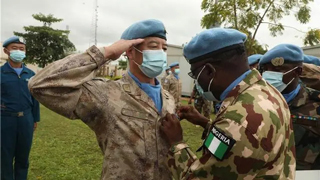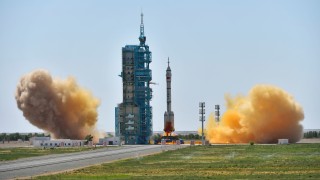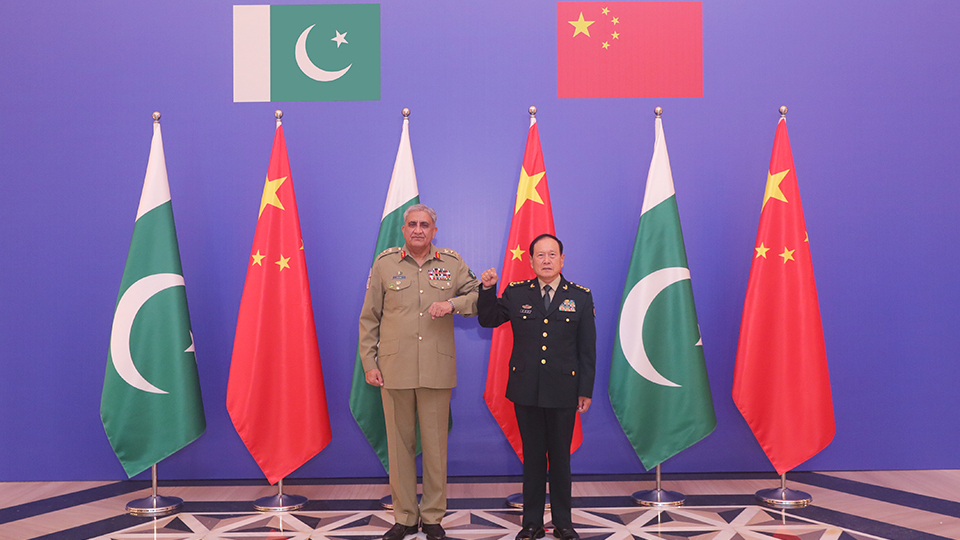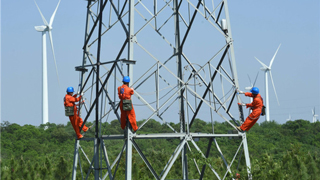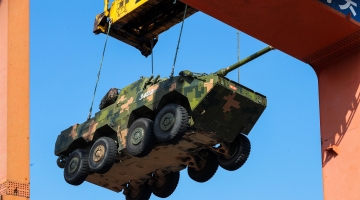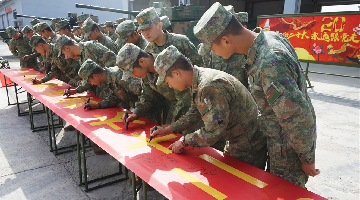
The US and ROK militaries hold joint military exercises.
By Hu Wenhan
The new US Secretary of Defense Mark Esper recently wrapped up his visits to five Asia Pacific countries, including Australia, New Zealand, Japan, ROK and Mongolia. It was his first overseas trip after officially taking over the Pentagon in late July, fully demonstrating how much importance he attached to the region. However, given the many divergences between the US and its Asia Pacific allies regarding economic, military and other aspects, Esper’s proposals during the visit were flatly refused by the allies, and his Asia Pacific debut ended up in embarrassment.
Esper snubbed in his first overseas trip as secretary of defense
The New York Times reported that Esper’s focuses were mainly on Australia, Japan and ROK during this trip to the Asia pacific, while he only had brief consultations with New Zealand on their security cooperation and limited the talks on rare earth resources with Mongolia. With the first three allies, he put three topics on the table - deploying land-based medium-range missiles on their territory, propelling them to join the “escort coalition” at the Persian Gulf, and urging Japan and ROK to update the General Security of Military Information Agreement (GSOMIA), but his proposals were not endorsed as he expected.
Regarding the deployment of land-based medium-range missiles, Australian Minister for Defense Linda Reynolds and Prime Minister Scott Morrison both said after meeting with Esper that Canberra wouldn’t “consider this option”, Tokyo said it hadn’t “taken any specific step to deploy (land-based medium-range missiles)”, and ROK Defense Ministry announced that Seoul “had no intention of deploying (land-based medium-range missiles)”.
Regarding the building of the “escort coalition”, although Esper claimed that “all countries that benefit from the freedom of navigation and trade should seriously consider joining it”, Reynolds said Australia hadn’t made a decision yet since the request made by Washington was no small issue and was highly sensitive. Japanese officials were “on guard” and “on high alert” when meeting with Esper, but they breathed a sigh of relief afterwards since “the US didn’t sound very urgent”. Tokyo even commented that the US-Iran tension was “caused by Trump administration quitting the Iran nuclear agreement”.
As to the update of GSOMIA, with Japan and ROK recently experiencing escalated confrontations on historical issues and export regulation, Seoul threatened to abolish the GSOMIA when it expires at the end of August and stop intelligence sharing with Tokyo. Seeing the tough stance of senior ROK government and military officials, who accused Japan’s intensified export regulation of “causing negative impacts on the ROK-US-Japan security cooperation”, Esper didn’t mention the need to timely update the GSOMIA when meeting with ROK President Moon Jae-in.
Media calls Esper’s experience no surprise
Foreign Policy, an American magazine, published an article saying that making Asia Pacific the destination of Esper’s first overseas trip after taking office was the result of careful considerations and reflected the great importance that Pentagon attached to the region. Since the seat behind the wheel at Pentagon has been empty for a long time and Trump’s unpredictable foreign policies have made its allies in the Asia Pacific doubtlessly on the watch, it’s no doubt that Esper’s trip was meant to make a gesture to placate its allies. According to Darrell West, a senior research fellow at Brookings Institution, Esper hoped to exchange views and seek consensus with several countries in the region on regional security, Korean nuclear issue, and other fields through this trip.
The embarrassing result of this trip was generally believed to be the outcome of America’s losing of its allies’ supports after its self-willed actions.
Japan’s The Diplomat Magazine held that it’s hard for the US to persuade its allies to agree to the deployment of land-based medium-range missiles on their territory, because the deployment in ROK would cause huge uncertainties to the solution of the Korean nuclear issue and to the peninsula situation, and the deployment in Japan or Guam would escalate the regional tension and meet with vehement objection from the Japanese. Troy Stangarone, a senior director of American think tank, the Korea Economic Institute, noted that the US-Japan trade negotiations haven’t come to an agreement yet, and Washington’s disagreement with Tokyo and Seoul on the sharing of military expenditure for American troops stationed there hasn’t been settled either. All these make us wonder how staunch the relation is between the US and its two Asia allies, and how the relations pose bigger challenges to their trilateral relationship and put a wet blanket on Washington’s hopes to accomplish its Asia Pacific deployments by relying on the two allies.
According to Gordon Flake, CEO of Perth US-Asia Centre of The University of Western Australia, “American first” meant the US wouldn’t accommodate the interests of its allies. Since Esper’s proposals didn’t meet the interests of its allies, no wonder they were rejected. Zhu Jianrong, a professor at Japan’s Toyo Gakuen University, also said the new US Secretary of Defense was stirring up the Asia Pacific situation by calling white black, telling lies and making excuses, which fully demonstrated Washington’s anxiety resulting from its decline and loss of support. American website The National Interest published an article saying that as the current Asia Pacific situation is at a subtle moment, Esper’s wish to push relevant countries to “take side” soon may fall flat, and how the regional situation will go remains to be observed.
Alliance falls apart
Generally speaking, Esper took Asia Pacific as the first station of his foreign trip because the region plays an irreplaceable role in America’s national strategy and military deployment. Against the background that the American military is aiming at “strategic competition between major countries” and accelerating the “Indo-Pacific strategy”, Japan, ROK and Australia’s position as strategic pivots becomes more prominent, and countries like New Zealand and Mongolia also have potential values in military cooperation.
However, under the “America first” strategy, the American government and military are so eagerly pursuing immediate benefits for itself at the expense of other parties’ interests that they take more from their allies than they give them, even giving none at all. While raising the “price” for its military commitments, the US is pushing its allies to the “eye of the storm” of “major-countries’ strategic competition” step by step. This was not only fully reflected during Esper’s Asia Pacific trip, but was also seen in Europe and the Middle East.
Looking forward, if the Trump administration continues to rashly advance the “Indo-Pacific strategy” regardless of its allies’ security and regional development interests, and is bent on intensifying the deployment of offensive military forces in the Asia Pacific region, it will not only keep up the regional tension, but also court louder objections from the allies. Its relationship with allies in this region may fall apart as their division widens.
